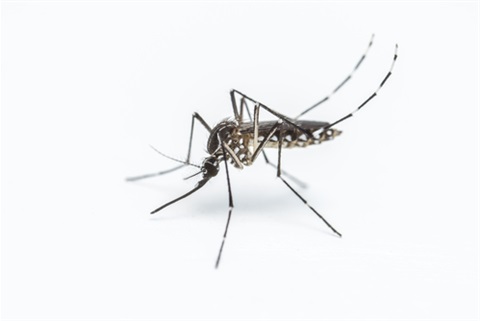Murray Valley encephalitis case reported in West Kimberley
Published on 19 May 2023

A case of Murray Valley encephalitis (MVE) has been confirmed in the WA’s northwest.
The case involves an adult who was most likely to have been exposed to infected mosquitoes while travelling from the Pilbara through coastal parts of the West Kimberley in late April/early May.
The person is receiving care in hospital.
This is the fourth confirmed case of MVE reported in WA since 2018 and the third reported this year.
Throughout Australia, there have been 14 confirmed cases of MVE in 2023.
Department of Health Managing Scientist Dr Andrew Jardine urged people to take measures to prevent being bitten by mosquitoes.
“You cannot afford to be complacent about mosquito bites – especially if you are living or traveling in the State’s northwest,” he said.
“And the only way to protect yourself from MVE is to avoid mosquito bites – there is no vaccine or specific treatment for this virus.”
Avoiding bites will also protect against other infections carried by mosquitoes including Japanese encephalitis and Kunjin viruses.
Dr Jardine said while the risk of getting infected and becoming sick was low, the illness caused by MVE could be severe and even deadly. A Western Australian child has died from MVE this year.
Symptoms
Initial symptoms usually occur a couple of weeks after infection and include fever, drowsiness, headache, stiff neck, nausea, and dizziness.
“If you have these symptoms, seek medical advice as soon as you can," Dr Jardine said.
In severe cases, people can have seizures, lapse into a coma, be left with permanent brain damage, or die.
Dr Jardine warned that in young children, fever might be the only early sign of infection.
“Parents should see their doctor or local health service if concerned, particularly if their child experiences drowsiness, floppiness, irritability, poor feeding or general distress,” he said.
Despite the cooler weather, mosquito numbers are still high around the Shire Broome, with the insects breeding in drying floodplains.
Numbers are particularly high around the Roebuck Plains, with the dry-season easterly winds blowing the mosquitos towards Broome.
Steps to avoid bites:
- Cover up outside – wear loose, long-sleeved, light-coloured clothing, particularly at dawn and dusk when mosquitoes are most active.
- Ensure babies and children are adequately protected against mosquito bites, with suitable clothing, shoes/socks, bed nets or other forms of insect screening.
- Apply mosquito repellent, containing picaridin, DEET or oil of lemon eucalyptus (OLE – also known as PMD), evenly to all areas of exposed skin. Read the instructions to find out how often you should reapply repellent.
- Mosquito wristbands and patches are not recommended as there is no evidence that these provide good protection against mosquito bites.
- Avoid outdoor exposure, particularly at dawn and early evening.
You can also limit the number of mosquitoes in and around your home:
- Cut grass often and keep it short to reduce mosquitoes seeking shelter around your home.
- Apply a residual surface spray (containing bifenthrin) to outdoor walls, patios, and other spots where mosquitoes might land – this will kill them. You can buy these products from hardware stores.
- Remove water holding containers from around the home and garden to ensure mosquitoes do not breed in the backyard.
- Check insect screens are installed and in good condition on houses and caravans.
- Use mosquito nets and mosquito-proof tents if sleeping outside.
- Use mosquito coils and lanterns.
Click here more informartion about mosquitos and mosquito reduction in the Shire of Broome.